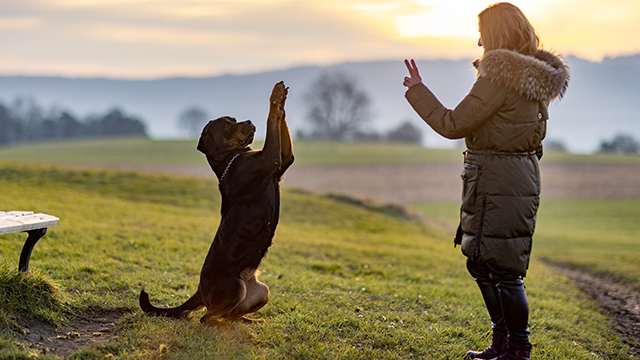Dogs are known to be loyal and loving companions for humans. However, a well-trained dog is the key to a healthy relationship and a smooth coexistence in everyday life. While proper dog training makes life easier for both the dog and its owner, there is also the question of how much a dog can learn. Here is more information about dog training and the dog’s learning potential:
Dog Training and Good Housebreaking
Dog training is the process by which a dog learns desired behaviors and avoids unwanted behaviors. Good dog training ensures that the dog is socialized, learns basic obedience skills and exhibits appropriate behavior. Here are the basic steps for dog training:
Positive Reinforcement: Positive reinforcement is used to get the dog to exhibit desired behaviors. Rewards encourage the dog to repeat the desired behaviors. Rewards can be in the form of food, toys or praise.
Continuity: Continuity is important in the dog training process. Training sessions should be held regularly and the behaviors taught should be repeated. Consistency helps the dog learn the desired behaviors faster and helps them stick.
Patience: Dog training is a process that requires patience. It may take time for the dog to learn the desired behaviors and sometimes repeated applications may be required. Being patient will help you understand your dog better and train them more effectively.
Professional Help: If you have no experience in dog training or are experiencing complex behavioral problems, you can seek the help of a professional dog trainer. Professional trainers can help you create a training plan that suits your dog’s needs and guide you through the training process.
Dog’s Learning Potential
Dogs are highly intelligent animals that are capable of learning. However, the maximum amount a dog can learn depends on various factors. The dog’s breed, age, genetic predisposition and training history are among the factors that influence its learning potential. While some dog breeds learn faster than others, each dog’s individual learning speed can be different.
Dogs are generally quite capable of learning basic obedience commands and behaviors. Basic commands such as sit, down, down, come are among the behaviors that a dog can learn. However, the limits of what a dog can learn are directly proportional to the dog’s individual abilities and training methods.
Regular exercise, mental stimulation and the use of positive reinforcement are important to increase your dog’s learning potential. With a good training program, you can maximize your dog’s potential and ensure that it successfully learns the desired behaviors.
Conclusion
Dog training is the key to a healthy relationship with dogs and a smooth coexistence. Positive reinforcement, persistence and patience are important elements of ensuring that your dog learns the desired behaviors. Your dog’s learning potential can vary depending on its breed, age, genetic makeup and training history. However, with the right training techniques and appropriate methods, you will find that your dog has the capacity to learn many things.
There is no limit to how much your dog can learn. Each individual dog has a different learning ability and potential. Some dogs learn faster, while others may require more repetition and patience. The most important thing to consider during your dog’s training process is patience and consistency. With the right training techniques and regular practice, you can maximize your dog’s learning capacity.
In conclusion, dog training is a process that requires patience and effort from both the dog and the owner. Creating a training plan that suits your dog’s needs and using positive reinforcement are important for a successful training process. Your dog’s learning potential is not limited by the right approach and training methods. Every dog has the potential to learn desired behaviors with love, patience and consistency.



